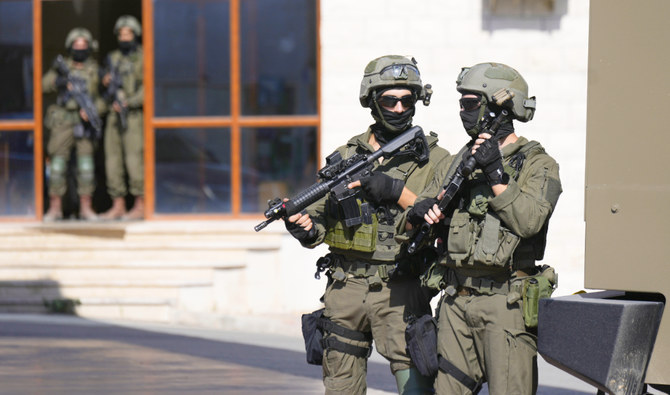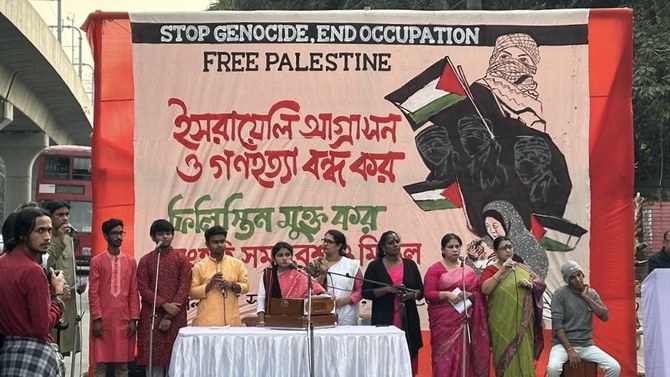
It is an imperative that any fighting force that would like to be regarded as moral and ethical should refrain from targeting civilians. Under certain circumstances, it is actually a war crime to harm civilians, certainly when deliberate. Yet, there has not been a single war in which civilians did not pay a heavy price by either losing their lives, being badly injured or having their property damaged — and such deeds are usually inflicted with complete impunity, both for those who sanction them and those who execute them.
Only this month, in the latest round of hostilities between Israel and Palestinian Islamic Jihad in Gaza, at least 13 Palestinian civilians were killed by the Israel Defense Forces, including women and children, while two — a Palestinian laborer working in Israel and an elderly Israeli woman — were killed by Palestinian Islamic Jihad’s rockets. The killing of these innocent people is infuriating enough but, to add insult to injury, such acts are habitually followed by a collective shrug of the shoulders and the dreaded utterance of the euphemism that the victims merely represent “collateral damage,” thus dehumanizing them and trivializing the suffering inflicted on their families.
In Israel, use of the term collateral damage has become some sort of justification, even a way of blaming those killed by the IDF merely for being in the wrong place at the wrong time, thus exonerating the killers. In my view, this is another indication that Israeli society is becoming not only insensitive, but utterly desensitized to the suffering of their Palestinian neighbors, who are occupied and blockaded and deprived of basic human rights, not to mention political and civil rights.
One of the most debunked arguments frequently employed by the apologists for collateral damage is that Hamas and Palestinian Islamic Jihad are also targeting civilians, and deliberately so. There is no denying this, but those are movements that are internationally proscribed as terrorist groups, while Israel is a state that is held to a different standard of behavior and should act accordingly, unless it would prefer to be regarded and treated similarly to organizations such as Palestinian Islamic Jihad and Hezbollah.
Admittedly, Israel is not the only country to have such a laissez-faire approach to this dreadful and infuriating term and its twin notion of “proportionality.”
Collateral damage came into use during the Vietnam War and, over several decades, became entrenched not only in military jargon, but also in the political discourse of too many countries, while Russia has taken things a step further by treating the entire Ukrainian population as a legitimate war target. In 1999, German linguists selected collateral damage as the “un-word of the year” for its trivializing of civilian casualties.
The term has two main objectives — to justify past atrocities and legitimize future ones. But it is not the only euphemism used in relation to military situations. What are “enhanced interrogation techniques” if not techniques of torture, which is prohibited by the Universal Declaration of Human Rights? What is “targeted killing” if not assassination? What is “extraordinary rendition” if not kidnapping with no legal basis? When these terms enter into common usage, they serve to ease the conscience of those who use them; to help them sleep at night while their governments are destroying innocent lives, allegedly on our behalf.
Israeli society is becoming not only insensitive, but utterly desensitized to the suffering of their Palestinian neighbors
Yossi Mekelberg
Let us consider for a moment the first night of Israel’s “Operation Shield and Arrow.” The names of “military operations” — in other words, acts of war — are also there to shield and belittle their destructive and deadly nature. In this case, where Israel targeted three Palestinian Islamic Jihad commanders, claiming that they were involved in recent attacks on Israeli civilians, we see the use of collateral damage in its sheer ugliness. Could targeting militants justify this air raid, in which 10 civilians were killed, among them four children and four women, and many more injured?
How can Israel justify the killing, for instance, of Dr. Jamal Khaswan, a well-known dentist and the director of Gaza City’s Al-Wafa hospital, who was slain together with his wife Mervat and son Youssef? Is being a neighbor of a commander of Palestinian Islamic Jihad a crime that comes with a death penalty? Then there is the case of Mayar and Ali Izzeldeen, who were 12 and eight-year-old siblings killed by an Israeli air raid and were, in the eyes of Israel, a “legitimate” target simply by accident of birth, as they were the children of Tareq Izzeldeen, a senior Palestinian Islamic Jihad militant, who was targeted and also killed in this attack.
There has been no apology or expression of sorrow by officials in Israel. And, what is more, we should not bother waiting on one either. But analysts and commentators, who are supposed to represent the more sane and humane among Israeli society, also preferred to speak about how Israel, with these killings, had “restored deterrence” and badly damaged Palestinian Islamic Jihad’s chain of command and infrastructure, while almost entirely ignoring the innocent victims of these hostilities.
What they are reluctant to speak about is how a country that loses its sensitivity to the killing of innocent children is one that is losing its humanity, its morality and its soul, and will eventually lose international support. To state the very obvious, civilians — including those who happen to be born into what Israeli perceives as the wrong families — should be immune from drone attacks or precision and guided ammunition, because nobody has the right to cut their life short.
Other Israeli politicians and analysts were roaming TV studios, explaining how Israel’s military operation in Gaza was “proportionate.” But who is the arbiter of this? Is it about prevention, deterrence or proportionate revenge? Israel’s referring to the killing of innocent people as “deterrence” leaves it blind to how it is losing its moral fabric, as well as being blind to any future solution in which the country’s security does not depend on extrajudicial killings that result in children never becoming adults.
In Israel’s security paradigm, the entire Palestinian population is one collective item of collateral damage. The occupation of the West Bank and the blockade of Gaza kills Palestinians every single day, directly or indirectly, due to being shot, not allowed or delayed for a hospital appointment or as a result of the extreme poverty inflicted on them by Israel for decades. While the daily damage, death and destruction being dealt out to the Palestinians is all too clear, a quick glance at what is currently taking place within Israeli society and the turn to authoritarianism by its bellicose government demonstrates how this is contributing to changing the country — and for the worse.
• Yossi Mekelberg is professor of international relations and an associate fellow of the MENA Program at Chatham House. He is a regular contributor to the international written and electronic media.
Twitter: @YMekelberg











